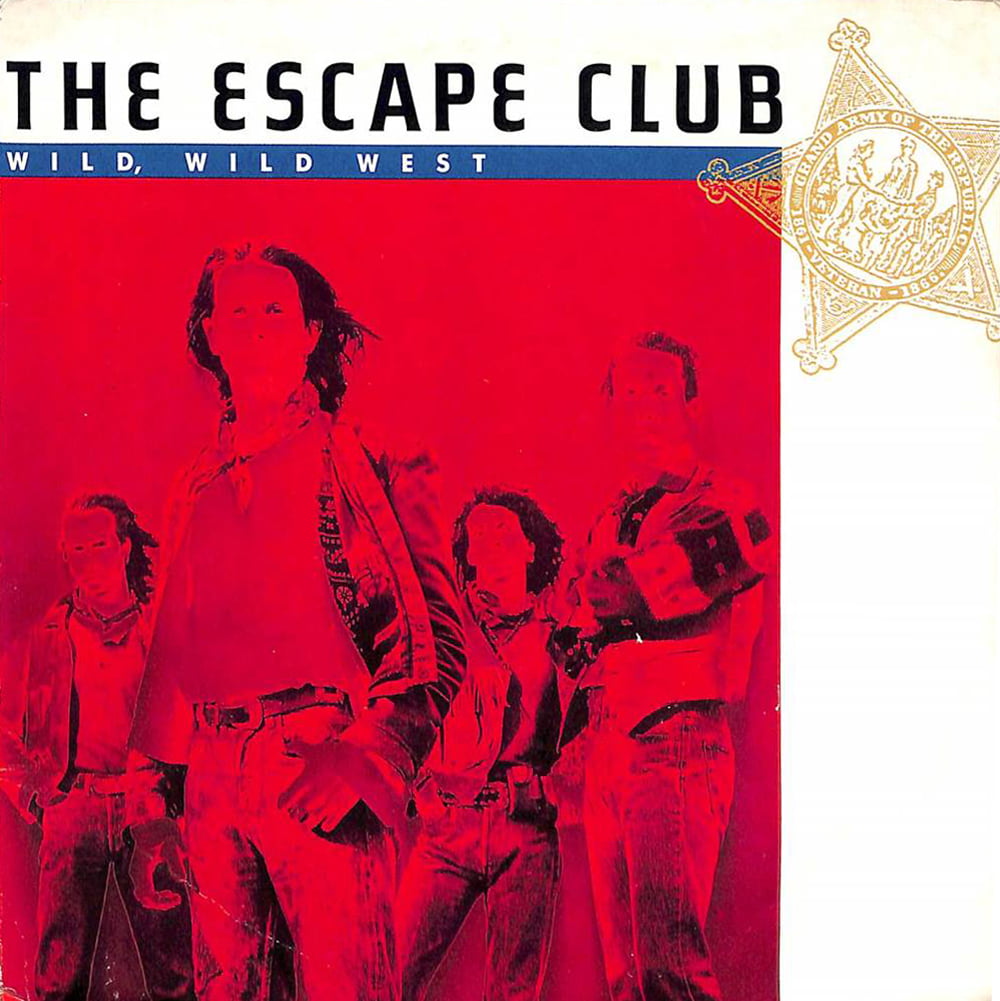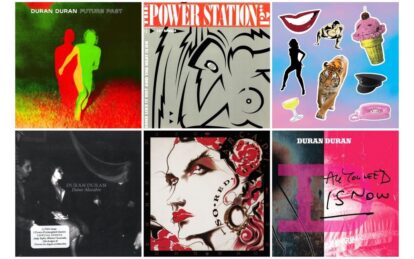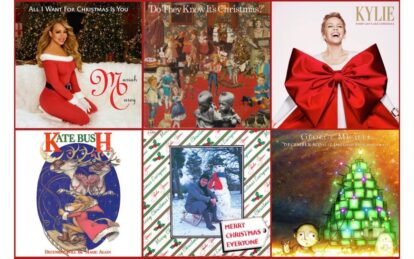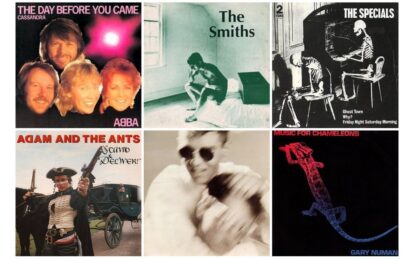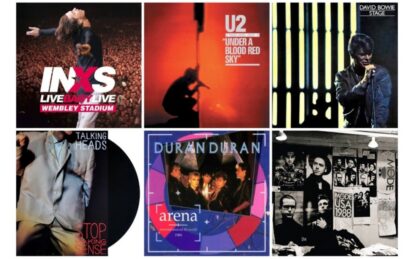Some songs are American hits, but not British ones. Here then is our Top 20 countdown of the songs that never quite made it over here…
Much was interchangeable between the UK and US charts in the 1980s as particular genres and stars controlled both sides of the Atlantic. Yet it always came as a surprise when something caught on immeasurably on the Billboard Hot 100 that the chart in Britain simply wouldn’t entertain.
Sometimes the reason was understandable – a song in an US sitcom or soap not shown anywhere else – but in many cases the act was established, or the movie it came from was a box office smash. Obviously plenty of great British music was also around to nullify a lot of Stateside’s attempted infiltration, yet there were some truly inexplicable anomalies.
A sizeable number of the 29 US No.1s in the 80s that missed the UK Top 40 were medium-pace soft rock and hair metal songs – which, on reflection, could have also been a reason.
Here we count down our Top 20.
20: Cold Hearted
Paula Abdul (No.1 1989, UK No.46)
It took everyone by surprise when this choreographer-to-the-stars’ debut album Forever Your Girl sold seven million copies and yielded four No.1 singles from six releases. Cold Hearted was a jumpy, inoffensive pop soul number that represented textbook Abdul alongside tracks like Straight Up and Opposites Attract. At the time, her star was aided by admiration for her work ethic – while promoting the album she was also choreographing Tracey Ullman’s TV show, an Eddie Murphy movie and George Michael’s Faith tour.
19: Sara
Starship (No.1 1986, UK No.66)
Starship were the final part of the complex trilogy of two bands initially with Jefferson at the start of their name, and their mid-80s lighter-waving rock output earned them more dollars than anything their brace of psychedelic predecessors could have wished for. The titular female meant Mickey Thomas took on lead vocal duties here for a pleasantly melodic soft metal song, heavy on the electric piano, and raised by a surprisingly offbeat middle eight. It was their second of three US chart-toppers in little more than a year.
18: Seasons Change
Exposé (No.1 1988, UK No.97)
A manufactured girl band, recruited from different parts of the States by Miami DJ and producer Lewis A. Martinée. Their first three singles, all upbeat freestyle tracks, had made the Top 10, then Seasons Change was a romantic R&B ballad (with a most unusual key change towards the end) that fitted the American taste for schmaltzy, slow love songs, be they coated in guitars or soft beats, sung by long-haired rockers or glamorous soul divas. They had eight US Top 10 hits in all.
17: The Next Time I Fall
Peter Cetera with Amy Grant (No.1 1986, UK No.78)
Composers Paul Gordon and Bobby Caldwell wrote this pop slowie with Chicago in mind, but after posting the demo to his label, were gutted to hear Cetera had gone solo. Mercifully, the singer found the cassette discarded in a producer’s office and instantly wired the writers to say he’d do it – but as a duet. Grant, a labelmate and Christian singer raised in Nashville, was recruited and the track soon grabbed a US audience that was a sucker for a sentimental, big deal ballad.
16: Head To Toe
Lisa Lisa & Cult Jam (No.1 1987, UK No.82)
Production troupe Full Force wanted to promote their new project Lisa Lisa and Cult Jam as a Motown-pastiche trio with 80s rhythms, and set about writing songs to represent that. After some early moderate success, the golden vocals of Lisa Velez – double-barrelled by Full Force on her first promotional poster without her prior permission – extolled innocence and romance on Head To Toe without being twee, and the group had their first of a pair of No.1s in quick succession. She quit her job at Benetton immediately.
Read more: Top 20 ones that got away
Read more: Top 20 80s collaborations
15: Shakedown
Bob Seger (No.1 1987, UK No.88)
Glenn Frey was earmarked to lay down this synth-driven open road rocker from Beverly Hills Cop II but a bout of laryngitis on the day of recording prompted him to recruit scourer-voiced fellow Michigander Seger to take his place. The intro underscored the initial jewellery robbery scene, before playing in all its glory over the opening titles, and its concurrent top billing on the soundtrack album made it a very obvious No.1, later to be nominated for an Oscar and a Grammy.
14: The Flame
Cheap Trick (No.1 1988, UK No.77)
Written by a pair of Brits and rejected by Elkie Brooks, this colourful but sinister rock ballad eventually reached Illinois rockers Cheap Trick whose career had stalled markedly after substantial 70s success. Although some members made it plain they disliked the song, they recorded it as an obvious comeback hit, going beyond all expectations in hitting No.1. As a song about a stalker, its cause with critics was aided by a raising of the lyrical bar for cloying rock songs.
13: Rock On
Michael Damian (No.1 1989, UK did not chart)
David Essex’s stripped-back, haunting original was his breakthrough hit on both sides of the Atlantic. It sold a million and remains his signature song, much-loved by critics as well as fans. A whole 16 years later, the similarly dishy American singer Michael Damian – like Essex boasting a musical theatre background – recorded a bells-and-whistles stadium version that ended up in the movie Dream A Little Dream. It was one of those songs that’s so distinctive that any version worked, and it received the Essex seal of approval.
12: Satisfied
Richard Marx (No.1 1989, UK No.52)
Mid-tempo ballads with a hint of the ominous became the trademark of Richard Marx’s phenomenal early career that saw him achieve four Top 3 singles (including a No.1) from his first four releases. However, his second US chart-topper was something much harder. With many a hint to Bryan Adams’ brand of melodic guitar rock, Marx used all of his impressive vocal range to let himself properly go for once. His long overdue breakthrough in Britain would come with the follow-up, Right Here Waiting.
11: At This Moment
Billy Vera & the Beaters (No.1 1987, UK No.97)
If at first you don’t succeed… Californian blue-eyed soul singer Vera was a stage performer and occasional chart entrant in the 1960s, who recorded this gorgeous piano ‘n’ sax ballad in 1981 to little notice. A refreshingly uncluttered work, the musicality is immense (and Vera’s vocal superb) but as is often the case, something random earned it mass attention; in this instance, the sitcom Family Ties used it as a romantic background piece. The band didn’t even have a recording contract at the time.
Read more: Top 20 Blondie songs
Read more: Top 20 Reunion Albums
10: I Love A Rainy Night
Eddie Rabbitt (No.1 1981, UK No.53)
A hook-laden country crossover anthem from a New York singer going for a more contemporary audience. The song was more than a decade in the making, started by Rabbitt when he was housebound by a huge electrical storm and completed with help from two regular collaborators after he found it among a load of dusty tapes of song snippets stored in his cellar for years. It also took a long time to catch on, basking in its fortnight at No.1 a whole three months after release.
9: Sailing
Christopher Cross (No.1 1980, UK No.48)
With his foggy tenor tones making this Texan multi-instrumentalist entirely unique, his rise as the biggest new American star of 1980 was sharp and devastating. Debut single Ride Like The Wind got to No.2, then this charming, wibbly follow-up hit the top in the summer of 1980 and earned him five Grammy awards. Already pushing 30 at the time, his late start and the rise of MTV and the new wave meant he later had to settle for status as an album artist.
8: Oh Sheila
Ready For The World (No.1 1985, UK No.50)
The baffling cod-English chanting (“What’s good for the goose is good for the gander”) aside, this was a likeable, catchy R&B anthem nodding towards the thump of Prince’s mighty rhythms and with an enjoyably exiguous lead vocal, very much of its time. The Michigan-based R&B band, camp and mardy in their adapted admiral’s uniforms, were long-term successes in the States but the nearest they got to recognition in the UK was when this song was turned into a dance anthem by Angel City in 2003.
7: Jessie’s Girl
Rick Springfield (No.1 1981, UK No.43)
Infectious Aussie power pop via night classes and his mate’s squeeze, Jessie and his girl really existed, though names were changed to protect the embarrassed. Springfield’s appealing vocals and sharp cheekbones had already received notices as a teen idol in the early 70s, but legal wranglings then took him from the microphone and into acting, where a long stint in medical drama General Hospital won him more rounded attention as he approached his 30s. Being at No.1 on the day MTV launched helped, too.
6: Out Of Touch
Daryl Hall & John Oates (No.1 1984, UK No.48)
It’s been said that this pair were probably the 1980s’ most neglected act in the UK, when compared with Stateside achievements that had made them the most successful duo of all time. Out Of Touch, a marvellously tuneful slab of urban synth-pop, followed their killer songwriting traditions – draw them in with the melody, make them hum it, then the rest can follow. House twosome Uniting Nations mixed and messed about with the chorus to make a brilliant dancefloor version two decades later.
5: 9 To 5
Dolly Parton (No.1 1981, UK No.47)
The chummiest composition in Parton’s glittering career might also be the most famous flop in the UK to rule the US. A bouncy, piano-heavy country pop ditty with matter-of-fact lyrics about office struggles, it acted as the anthemic title song to the hugely successful commerce comedy in which Dolly made her silver screen debut alongside Jane Fonda, and later was used on spin-off TV and stage versions. Its singalong quality alongside a huge impact on female workers seeking equal rights has passed through the generations.
4: Roll With It
Steve Winwood (No.1 1988, UK No.53)
The precocious Winwood had joined and left The Spencer Davis Group then formed Traffic before he was even out of his teens, so the longevity of his career was already a talking point before the singer’s homage to his childhood soul heroes became Steve’s biggest hit shortly after he celebrated turning 40. Roll With It, with its distinctive bass-free chorus, was a splendid, joyful effort to recreate the horn-drizzled rhythm and blues music of the southern states, enhanced further by his recent relocation to Tennessee.
3: Maniac
Michael Sembello (No.1 1983, UK No.43)
Thanks to its use in Flashdance as the breakneck theme to Jennifer Beals’ notorious training session in legwarmers and leotard, while Grunt the pitbull loyally watches on, this instantly familiar single enjoys frequent airplay and ubiquity on hi-NRG compilation albums. Initially a song inspired by horror films, Sembello relieved its original lyric of rather more bloody, brutal themes in order to reflect a teen-friendly dance movie. Irene Cara’s ecstatic title song also hit No.1, snaffling the Grammy for which Maniac was nominated.
2: Who Can It Be Now?
Men At Work (No.1 1982, UK No.45)
The path to the top in the US wasn’t exactly smooth for the tatty Aussie unknowns, with 16 weeks passing between their debut single entering the chart and reaching No.1. In the interim, however, they got rave reviews supporting Fleetwood Mac and the video was played frequently on MTV. Murky, bluesy, offbeat, with Colin Hay’s distinctive gravelly vocal at variance with a fetching light saxophone, it was followed to the top by the immortal Down Under and two more Top 10 hits.
1: Wild Wild West
Escape Club (No.1 1988, UK did not chart)
The only British band to get to No.1 in the States without ever having a hit back home, Escape Club’s raunchy, boyish brand of pop rock took hold in the US after the controversial video to Wild Wild West was picked up by MTV while simultaneously receiving a UK ban for apparent sexism and misogyny, thanks to the mildly disturbing depiction of women’s limbs either firing pistols, stroking lead singer Trevor Steel’s denims or playing percussion.
The video may have been baffling but the song was straightforward – an irresistible one-note bellowing verse shamelessly adapted from Elvis Costello’s Pump It Up, garnished by a chorus easy for any casual listener to imbibe and whistle for the remainder of the day. The gunfire effects, plus the pistols and American flags in the promo, suggested the song was about the American frontier, but the band wrote it about the modern western world of the 1980s, imagining Reagan and Thatcher leading a big stand-off against the rest.
Even upon its elevation to the top in the States, radio in the UK failed to pick the song up – 1988 didn’t have a lot of room for hummable pop rock on its playlists – and the band, who had supported China Crisis and The Alarm in their formative years, gave up on their homeland, got out of their deal with a doubting EMI and signed to Atlantic Records after they insisted Wild Wild West would take the States by storm. Although they had their share of adulation in America, the band peaked immediately, and three more singles charted before they split in 1992.
Read more: Top 20 Posthumous Releases
Classic Pop may earn commission from the links on this page, but we only feature products we think you will enjoy.

